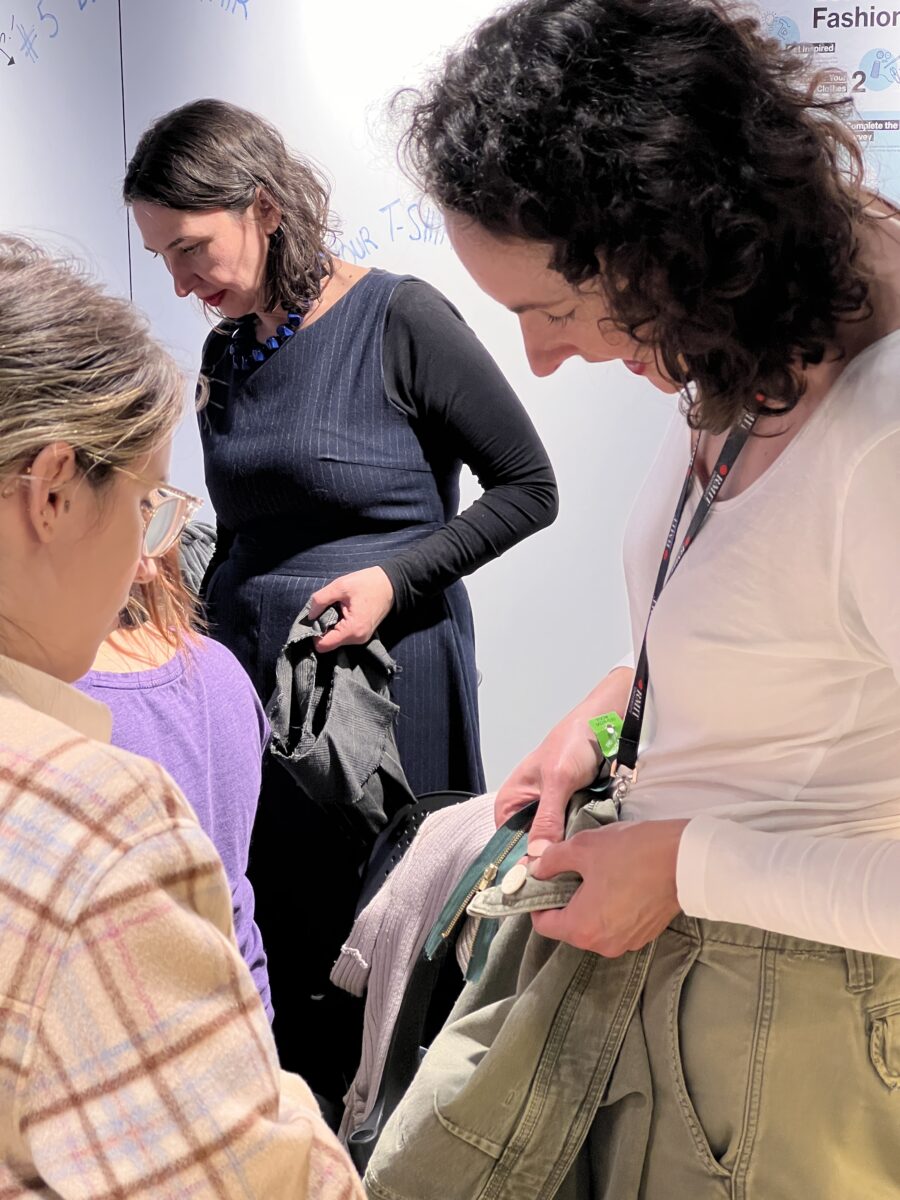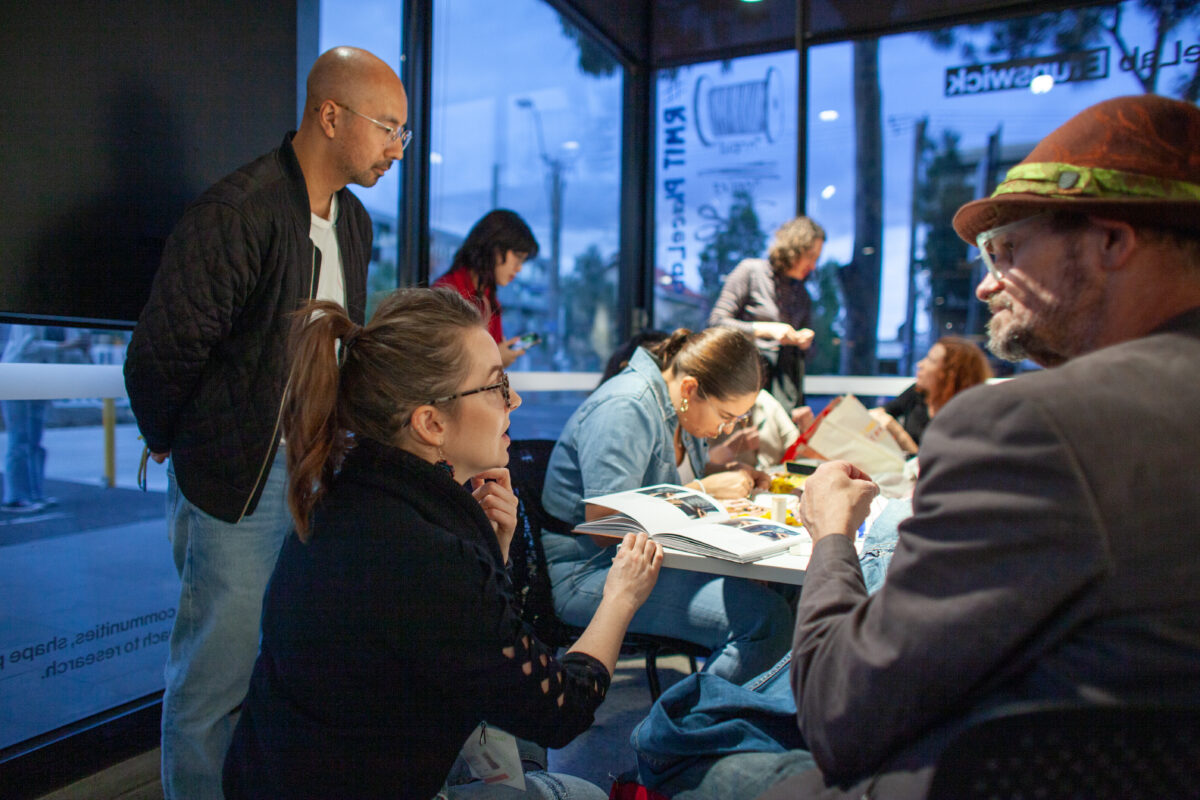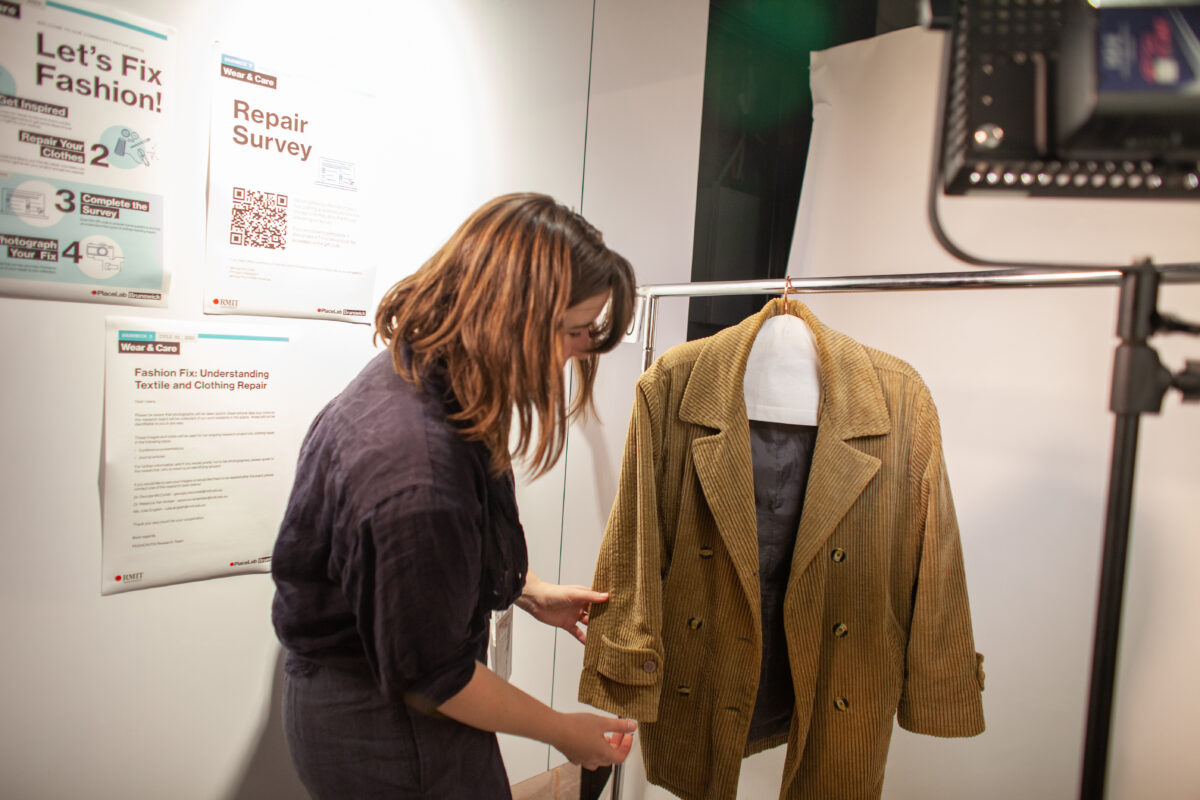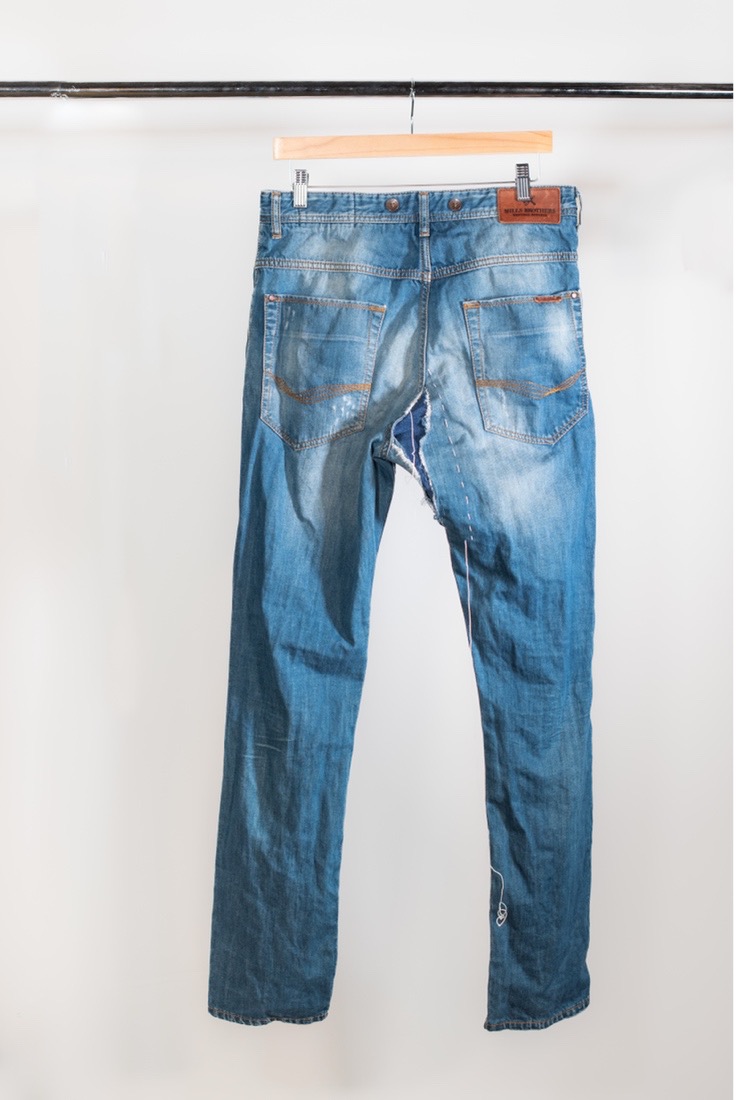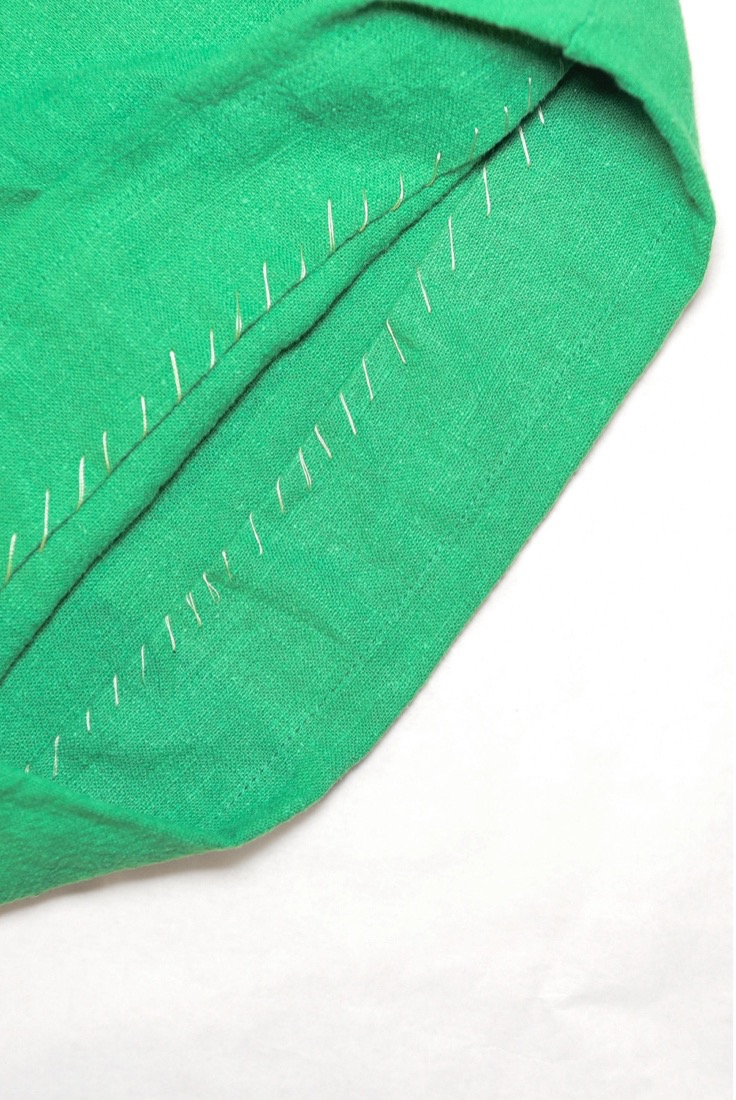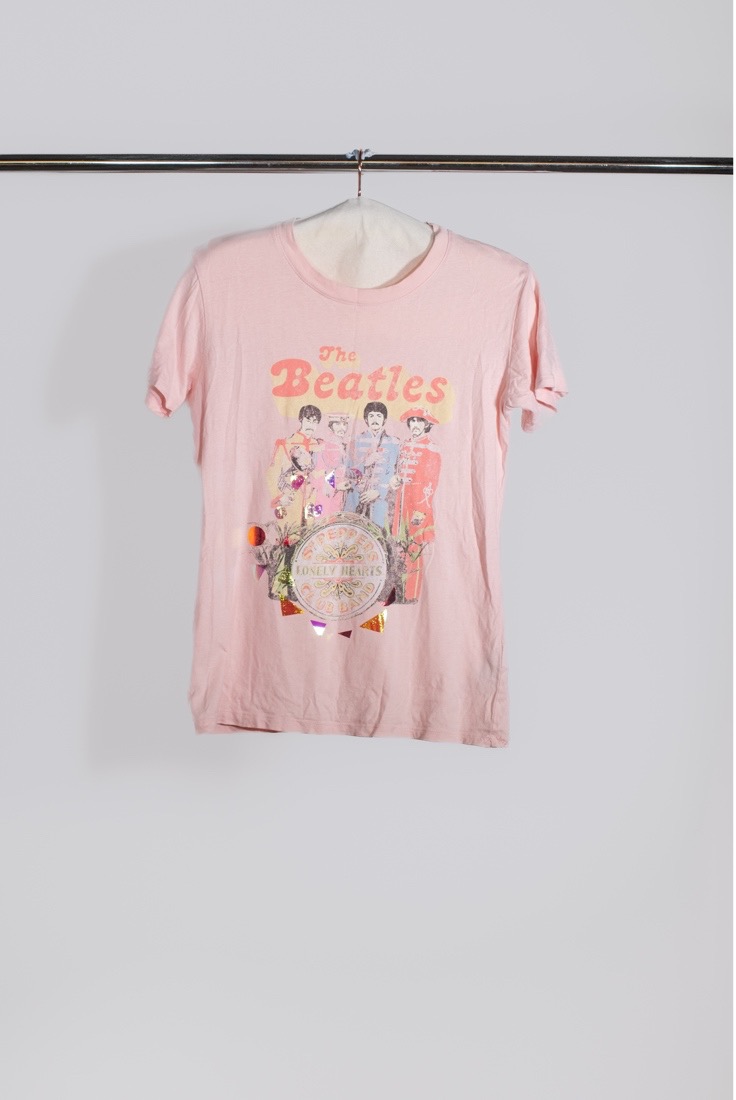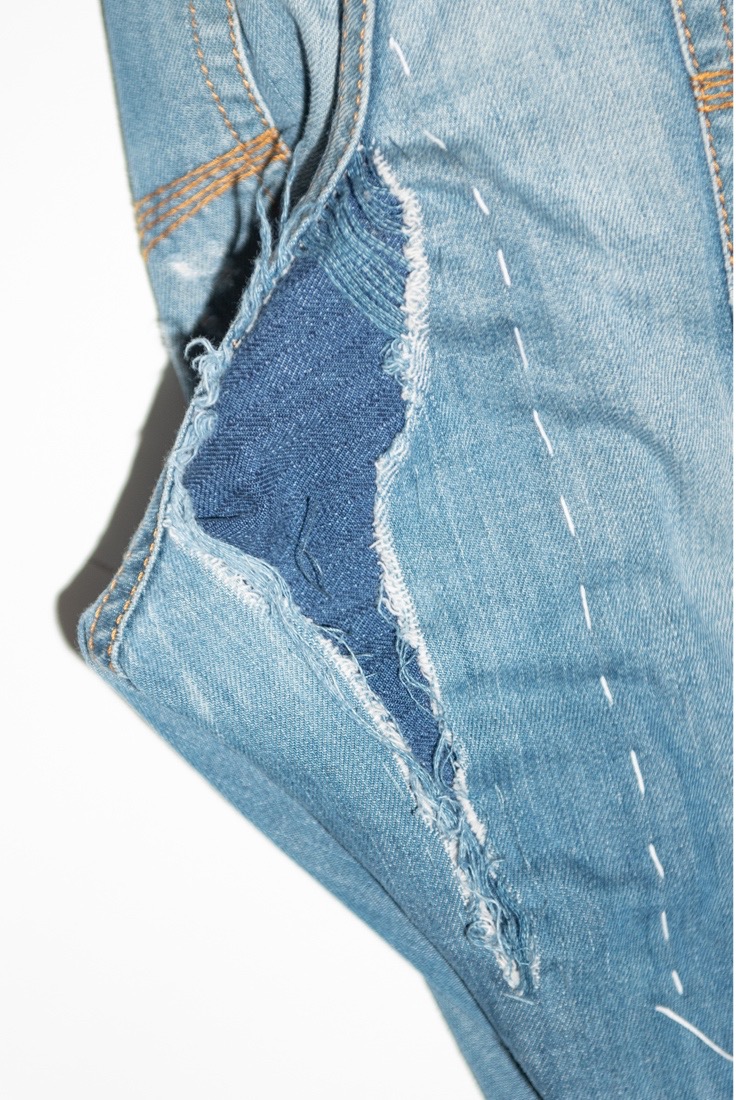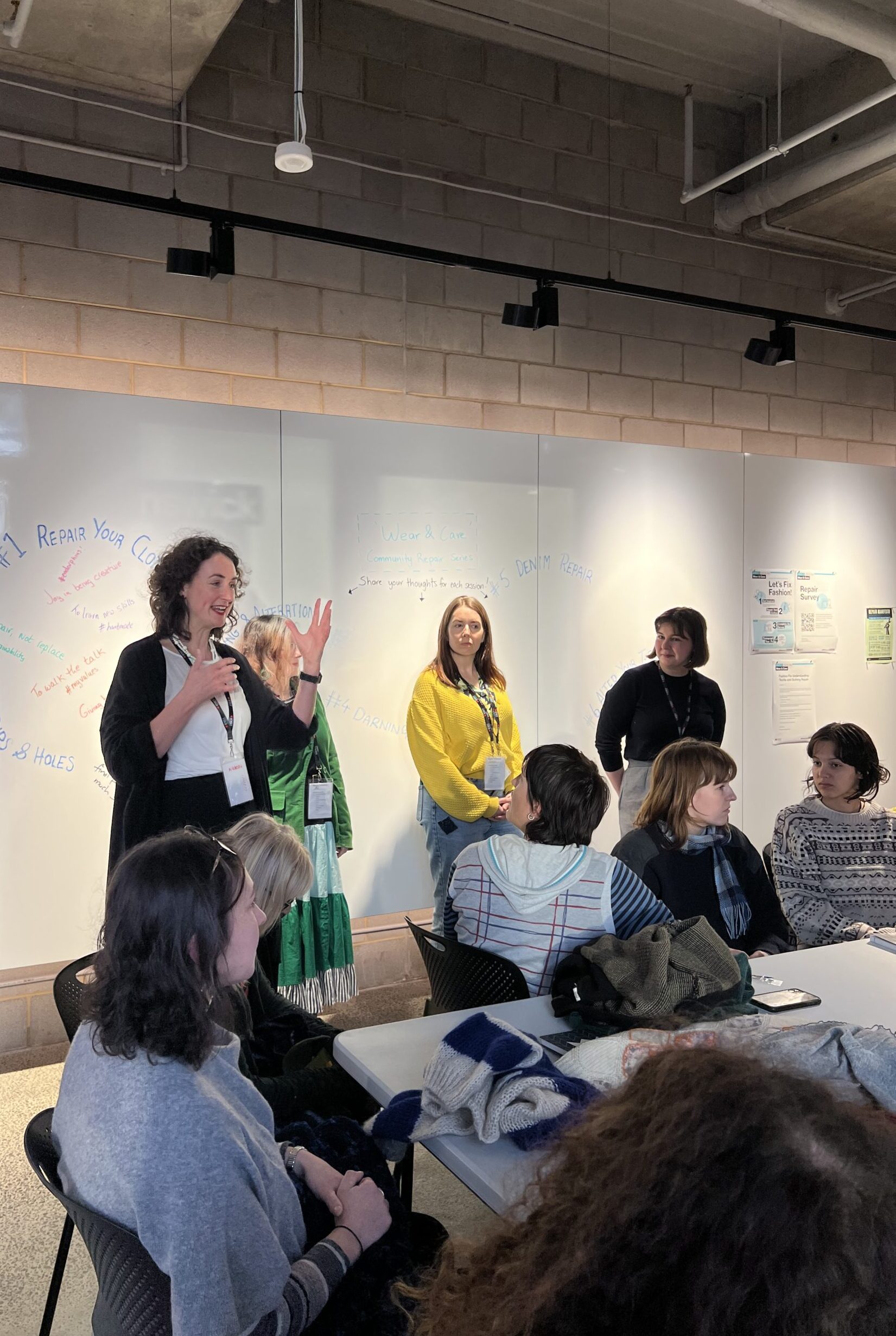
Collaborating researchers Georgia McCorkill, Julia English, Rebecca Van Amber as part of the ‘Wear & Care’ Research Project.
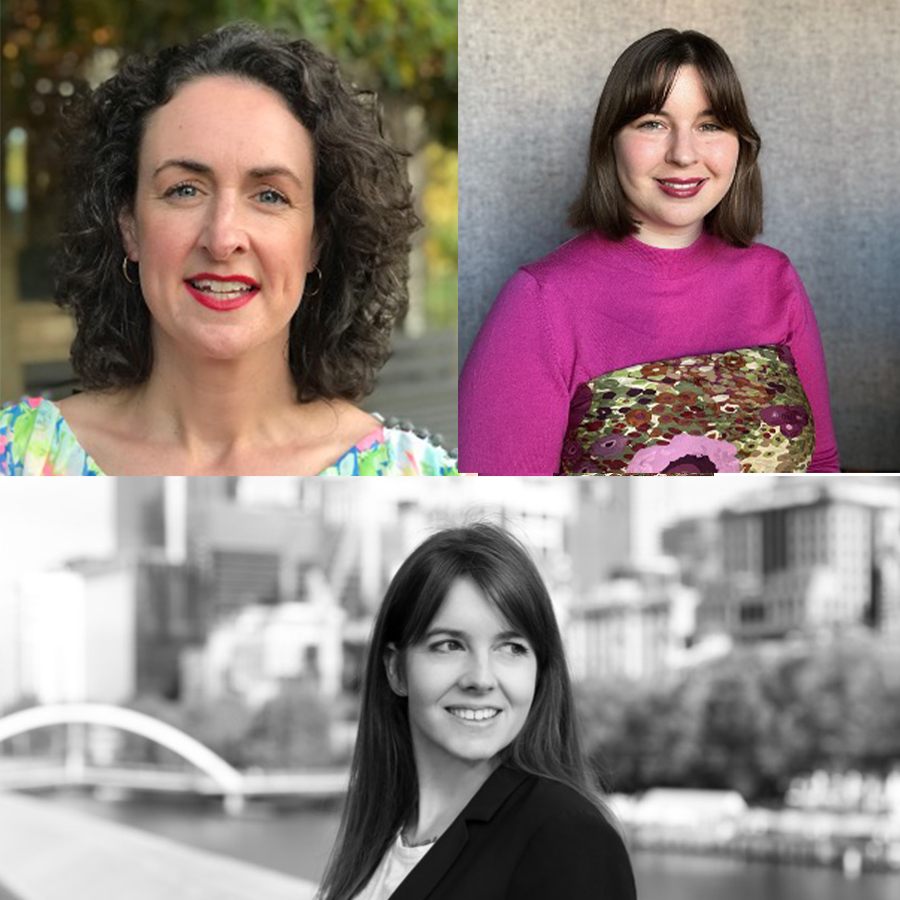
Collaborating researchers Georgia McCorkill, Julia English, Rebecca Van Amber as part of the ‘Wear & Care’ Research Project. Photos courtesy of Georgia McCorkill, Julia English, and Rebecca Van Amber.
Meet our RMIT PlaceLab ‘Wear & Care’ Research Project Academic Collaborators:
Dr. Georgia McCorkill, Dr. Rebecca Van Amber and PhD candidate Julia English, from RMIT’s School of Fashion & Textiles.
Dr Georgia McCorkill is a Lecturer in design within the School of Fashion and Textiles. Her practice-based research explores sustainable design strategies applicable to bespoke and micropreneur contexts such as upcycling, repair, and co-design. Her work has been exhibited in galleries and festivals within Australia. Her current project ‘Fashion Fix’ investigates garment repair from industry, community, creative, and activist perspectives. Georgia has applied her research into sustainable and circular design to the development and delivery at scale of subjects that embed new processes for creating and making from textile waste as a core competency for students in the Bachelor of Fashion (Design).
Dr Rebecca Van Amber is a Senior Lecturer in the School of Fashion and Textiles at RMIT University, and is an expert in textile materials, sustainability, research and development, and methods to design out waste in the circular economy for fashion. Rebecca was a winner of the 2017 H&M Foundation’s ‘Global Change Award’s’ Innovation Challenge.
Julia English is a PhD candidate and reuse fashion practitioner, who draws on her design and communication skills to share knowledge around textile reuse. Her PhD, “Collaborations for remake: Participation in practice”, focuses on understanding existing practices around collaboration to remake unwanted textiles, and this has included sharing her research interviews via her podcast, ‘Seam Change’. Julia is a sessional teacher at RMIT around sustainable fashion practices and runs workshops with local councils teaching repair techniques.
We are pleased to have worked with Georgia, Julia, and Rebecca, and their students in exploring the landscape of fashion rewilding practices in Brunswick as part of our research activity!
Georgia McCorkill, Rebecca Van Amber and Julia English leading the ‘Wear & Care’ Community Repair Series workshops. Photos by RMIT PlaceLab.
“Ways to engage in fashion as a cultural and expressive force beyond the expected processes of shopping for new clothes is key to the ‘Wear and Care’ Project and our focus on mending as a community and creative pursuit is a tangible demonstration of one way that this can be achieved.”
– Dr Georgia McCorkill
Can you tell us a bit about your own research and how it intersects with the RMIT PlaceLab ‘Wear & Care’ Research Project?
Julia: My research focus is about learning from existing designers and small businesses within the local Melbourne community who are remaking textiles through collaborations, a topic which I am currently exploring in my PhD, and through my podcast ‘Seam Change’. The focus on local actions which collectively make change intersects with the RMIT PlaceLab approach to hyper-local research, and I see a shared approach in critically examining how research can connect with those who can apply it in practice.
Georgia: My research is focused on fashion and sustainability through the lens of design. One area of exploration has been in the role of repair within fashion design. Repair is interesting both creatively and politically and it engages people in fashion in a way that sits outside a commercial interaction. So, repair provides an excellent community model for engaging with fashion practice. I also research and teach methods for designing with waste or second-hand materials and in this capacity, I was able to involve my student group in the subject ‘Fashion Design Reuse’ through their participation in a ‘Wear and Care’ aligned exhibition.
Why do you think a Research Project like ‘Wear & Care’ is significant for Brunswick in particular?
Julia: Brunswick has a thriving creative community which the ‘Wear & Care’ Research Project has helped to build connection between the RMIT Fashion & Textiles staff and students and key local actors.
Georgia: Brunswick has a dynamic ecosystem of second-hand clothing retail, there are many charitable op shops, large clothing resale stores like ‘Savers’, and consignment resale stores. There are also community sewing groups, repair cafes, tool libraries. These all combine to form a really fascinating ecosystem that enables people to have meaningful and sustainable relationships with their clothes and with fashion expression and the possibilities for this system should be better understood and amplified.
Tell us a little more about the activity you undertook in collaboration with ‘Wear & Care’ and RMIT PlaceLab?
Julia: I am part of the RMIT Repair Cafe, and I was involved in running the repair workshops held at PlaceLab Brunswick. You may have also noticed the blue and white illustrations which decorated the PlaceLab windows around May, that was also part of my contribution.
Georgia: We presented a series of six community repair workshops or “repair cafes”. This model involves volunteers teaching and helping the public to mend household items. Our events were clothing focussed, and each had a specific theme (eg, denim, alterations, knitwear), which not only helped on a practical level in terms of being able to provide the right materials on the day, but also allowed for community experts to share specific knowledge on topics ranging from knitwear darning to t-shirt customisation.
Running the Workshops gave us insights into the community repair movement specific to fashion. The repairs completed at the workshops were also documented to create a databank of garment repairs that is informing our research into garment longevity.
My students in ‘Fashion Design Reuse’ showed their work in an exhibition within PlaceLab Brunswick. They also contributed alongside the teaching team with interviews about their design process for working with secondhand garments (many of which were sourced from local secondhand sellers). The Exhibition demonstrated how the learning and teaching happening in RMIT’s School of Fashion and Textiles responds to contemporary concerns about clothing production and consumption and was a wonderful opportunity for students to have their work and reflections presented so beautifully to the public.
How are you contributing to the themes and areas being explored?
Ways to engage in fashion as a cultural and expressive force beyond the expected processes of shopping for new clothes is key to the PlaceLab ‘Wear and Care’ Research Project and our focus on mending as a community and creative pursuit is a tangible demonstration of one way that this can be achieved. Hopefully we not only showed that mending is already a popular (fashionable!) activity, we enticed more people to get involved!
Note from the researchers: Closet Clinic is a wonderful ongoing column in The Guardian by Lucianne Tonti that explores all manner of dimensions of garment care.
Items photographed as part of the research data collection for the Repair Cafe at RMIT team during the ‘Wear & Care’ Community Repair Series. Photos by Julia English.
